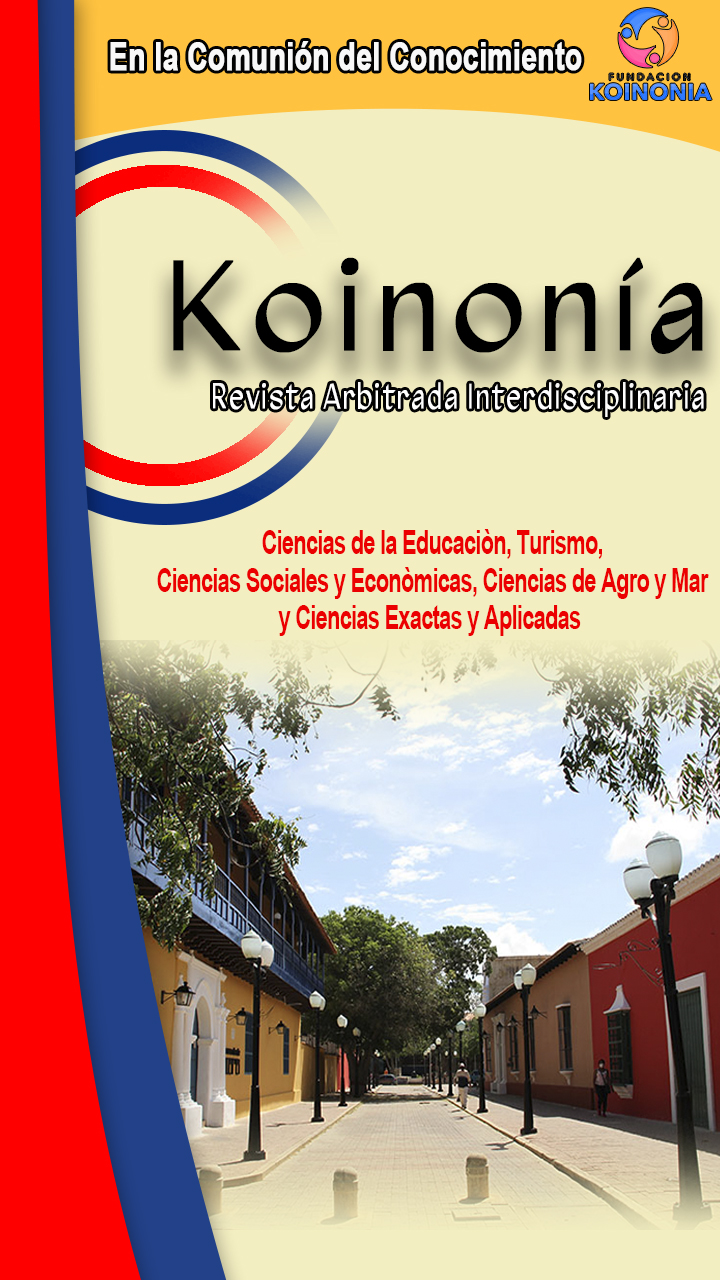Use of augmented reality in art education and its implications in learning
DOI:
https://doi.org/10.35381/r.k.v9i18.4153Keywords:
Educational technology, information technology, art education, (UNESCO Thesaurus)Abstract
The purpose of this research is to analyze the use of augmented reality in art education and its implications in learning. It is framed in a documentary type with a bibliographic design. The study population consisted of a total of 13 scientific articles. Augmented reality (AR) is presented as a powerful and transformative educational tool, with a wide range of applications ranging from general education to specific areas such as art education. The diversity of objectives reflected in the analyzed studies underlines the multifaceted interest in AR, evidencing its ability to improve students' understanding, motivation and engagement, the specific implications for art education highlight its potential to create immersive and personalized environments, while the challenges in teacher training point to the need to develop technological and pedagogical competences for its effective integration.
Downloads
References
Barráez Herrera, D. P. (2022). Metaversos en el Contexto de la Educación Virtual [Metaverses in the Context of Virtual Education]. Revista Tecnológica-Educativa Docentes 2.0, 13(1), 11-19. https://doi.org/10.37843/rted.v13i1.300
Berumen López, E, Acevedo Sandoval, S., y Reveles Gamboa, S. (2021). Realidad aumentada como técnica didáctica en la enseñanza de temas de cálculo en la educación superior. Estudio de caso [Augmented Reality as a Didactic Technique in the Teaching of Calculus Topics in Higher Education. Case Study]. RIDE. Revista Iberoamericana para la Investigación y el Desarrollo Educativo, 11(22), e040. https://doi.org/10.23913/ride.v11i22.890
Cabero Almenara, J., Vázquez Cano, E., y López Meneses, E. (2018). Uso de la Realidad Aumentada como Recurso Didáctico en la Enseñanza Universitaria [Use of Augmented Reality Technology as a Didactic Resource in University Teaching]. Formación universitaria, 11(1), 25-34. https://dx.doi.org/10.4067/S0718-50062018000100025
Cabero Almenara, J., Vázquez Cano, E., Villota Oyarvide, W. R., y López Meneses, E. (2021). La innovación en el aula universitaria a través de la realidad aumentada. Análisis desde la perspectiva del estudiantado español y latinoamericano [Innovation in the university classroom through augmented reality. Analysis from the perspective of the spanish and latin american students]. Revista Electrónica Educare, 25(3), 1-17. https://dx.doi.org/10.15359/ree.25-3.1
Capistrán Gracía, R. W. (2018). Reflexiones sobre la educación artística a nivel básico en Aguascalientes: Implicaciones para la educación superior [Reflecting on Basic Art Education in Aguascalientes, Mexico. Implications for Higher Education]. Revista Electrónica Educare, 22(2), 343-356. https://dx.doi.org/10.15359/ree.22-2.19
Cupitra García, A., y Duque Bedoya, E. T. (2018). Profesores aumentados en el contexto de la realidad aumentada: una reflexión sobre su uso pedagógico [Augmented teachers in the context of augmented reality: a reflection on its pedagogical use]. El Ágora U.S.B., 18(1), 245-255. https://doi.org/10.21500/16578031.3178
Folch, C., Capdevila, R., y Prat, M. (2019). Percepción del Profesorado sobre una Experiencia Multidisciplinar: Arte y Ciencias en un Grado de Educación [Faculty Perception of a Multidisciplinary Experience: Art and Science in an Education Degree Program]. Revista Digital de Investigación en Docencia Universitaria, 13(1), 38-56. https://dx.doi.org/10.19083/ridu.2019.743
Gómez García, G., Rodríguez Jiménez, C., y Marín Marín, J. A. (2020). La trascendencia de la Realidad Aumentada en la motivación estudiantil. Una revisión sistemática y meta-análisis [The transcendence of Augmented Reality in student motivation. A systematic review and meta-analysis]. ALTERIDAD. Revista de Educación, 15(1), 36-46. https://doi.org/10.17163/alt.v15n1.2020.03
León Calderón, H. W. (2022). La educación artística como objeto de estudio: una mirada desde la formación de formadores [Art education as an object of study: a look from the training of trainers]. Conrado, 18(85), 470-481. https://n9.cl/ue0y9
Ñáñez Rodríguez, J. J., y Castro Turriago, H. M. (2016). Educación artística y formación ciudadana: espacio para forjar la sensibilidad en la Corporación Colegio San Bonifacio, de Ibagué, Colombia [Arts education and citizen training: a space to build sensibility in San Bonifacio College Corporation of the city of Ibagué, Colombia]. Entramado, 12(2), 154-165. https://doi.org/10.18041/entramado.2016v12n2.24221
Ponce de la Fuente, H., Olivares Rojas, P., y Rossel Gallardo, C. (2021). Sobre la Acreditación en las Artes. Una lectura de los procesos de innovación curricular en la Facultad de Artes de la Universidad de Chile [On Accreditation in Arts. A review of the processes of curricular innovation in the Faculty of Arts of Universidad de Chile]. Dixit, (34), 105-114. https://doi.org/10.22235/d34.2597
Rial-Costa, M., Rial Costa, S., y Sánchez Oropeza, G. (2022). Realidad aumentada en los PPEA. Estudio en alumnado de secundaria [Augmented reality in the TLP. Study in High School students]. Revista Científica UISRAEL, 9(3), 149-174. https://doi.org/10.35290/rcui.v9n3.2022.614
Sousa Ferreira, R., Campanari Xavier, R. A., y Rodrigues Ancioto, A. S. (2021). La realidad virtual como herramienta para la educación básica y profesional [Virtual reality as a tool for basic and vocational education]. Revista Científica General José María Córdova, 19(33), 223-241. https://doi.org/10.21830/19006586.728
Published
How to Cite
Issue
Section
License
Copyright (c) 2024 Saby Burgos-Goicochea, Edith Loreley Vásquez-Correa, Alicia Ramona Zeballos-Echeverría, Carmen Elena Carbonell-García

This work is licensed under a Creative Commons Attribution-NonCommercial-ShareAlike 4.0 International License.
CC BY-NC-SA : Esta licencia permite a los reutilizadores distribuir, remezclar, adaptar y construir sobre el material en cualquier medio o formato solo con fines no comerciales, y solo siempre y cuando se dé la atribución al creador. Si remezcla, adapta o construye sobre el material, debe licenciar el material modificado bajo términos idénticos.
OAI-PMH URL: https://fundacionkoinonia.com.ve/ojs/index.php/revistakoinonia/oai.









